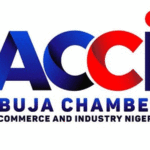Rowland Ocholi Ataguba is a London-based strategic railway delivery expert and member of the federal government’s committee for the unbundling of the Nigerian Railway Corporation. He has been Chairman of the Technical Advisory Committee on the Railway Bill and the National Transport Commission Bill in the House of Representatives. He spoke to Daily Trust recently. Excerpt:
Your constitution amendment bill was recently passed by the National Assembly. What is it about?
The bill seeks to transfer the railways from the exclusive list to the concurrent list, which means that states, local governments and the private sector can henceforth own, build and/or operate railways without needing the permission of the FG. It is a necessary step in reforming and restructuring the railway environment. It is important that we reform our railway space to improve outcomes. The National Assembly and the Senate in particular did well. They supported the bill with 92 votes to 0. That speaks volumes.
Why didn’t the state governors champion it?
- PHOTOS: Inside Ronaldo’s Saudi residence
- Police raid baby factories, rescue 10 pregnant victims in Rivers
You don’t know that they didn’t but it’s in their province now and they are supporting it.
So what is next?
We need the concurrence of at least 24 state houses of assembly and so far we are looking good. Beyond the constitution, amendment is the need to reform and restructure the railway environment. This means to repeal the NRC Act which is anachronistic. We must separate operations from regulation and policy formulation. There are too many conflicts arising from the status quo which has induced consistently poor performance of the railway. At the moment, there is a buzz around the railway with some projects being commissioned, and new equipment being purchased, but beneath the veneer lies the reality of unsustainability. We need new legislation to underpin the required changes. Then we must implement them diligently and purposefully. We need an independent regulator and private operators running trains. We need to separate the railway business into freight and passenger components.
The chairman of NRC recently lamented that they were running trains at a loss due to the high cost of diesel. What do you say?
The NRC has been running trains at a loss since 1964 and it is not because of the cost of diesel. Chisco is in the same line of business and is not running at a loss. So are GIGM, Dangote and many other transporters. The NRC has been bankrupt twice and is technically insolvent today. It is kept alive by the grace of federal appropriation. Take that away and it will go under immediately. The railway is a public utility that should provide the impetus for economic development when it works well, but it doesn’t and here lies the problem. I was not surprised that the minister was unsympathetic to the board’s cause.
Why has the NRC been running at a loss for all those years?
Many reasons; too many contradictions; it is a monopoly with conflicts of interest as it is an operator and a regulator. Its main activity is in competition with other modes of transportation, principally roads. It is a business run by bureaucrats; not entrepreneurs. It cannot compete against a dynamic and privately run roads sector. Its business model is incoherent. It combines two very different businesses and prioritises its loss, making the passenger business over its potentially viable freight business. It demonstrates a poor understanding of its markets and is not customer-focused.
It needs to be run efficiently to be able to compete and to do this, it needs incentives which it lacks. Its leaders are secure in their jobs regardless of how poorly their enterprise performs.
Why do you think the minister was unsympathetic?
I would surmise that they perhaps came forward with problems rather than solutions or were suggesting papering over cracks rather than deep and reflective thinking. Remember that the minister is a politician and asking him to approve a hike in fares so close to an election may be a no brainer. This however illustrates the futility of subjecting strategic business decisions to political whims. The road competition does not have that challenge.
So when will the unbundling of the NRC commence and how do you intend to go about it?
I have no idea when unbundling would start. It has faced push-back from vested interests that prefer that things stay as they are. The committee was inaugurated a year ago and as they say, a journey of a thousand miles begins with the first step. I would start with the fundamentals, the transport policy, for instance. The national transport policy needs to be fleshed out as should the strategy. The committee should be reconstituted. The BPE is central to the unbundling of public enterprises. The 25-year strategic vision needs to be revised. Most of the groundwork on the legislation has been done previously but navigating the National Assembly is never a cakewalk. The difficult task of corporatising the NRC and its property subsidiary is still ahead. The NRC has a number of sub-optimally performing non-core assets such as surplus lands, printing presses, hospitals, shops, foundries and factories, most of which will perform better in the private sector. We need a credible asset register and records. Staff rationalisation will probably prove more contentious because the gravy train has to stop but there is no reason for job losses as unbundling expands, not contract opportunities in the railway. The sector should ordinarily employ about 60,000 people at equilibrium as compared to less than 15,000 at present. Not everyone should however be a civil servant. There is no reason why some of the existing or past railway workers cannot club together to buy out some of the businesses and run them profitably. What must end is the gravy train because it shortchanges us all with mediocrity.

 Join Daily Trust WhatsApp Community For Quick Access To News and Happenings Around You.
Join Daily Trust WhatsApp Community For Quick Access To News and Happenings Around You.


